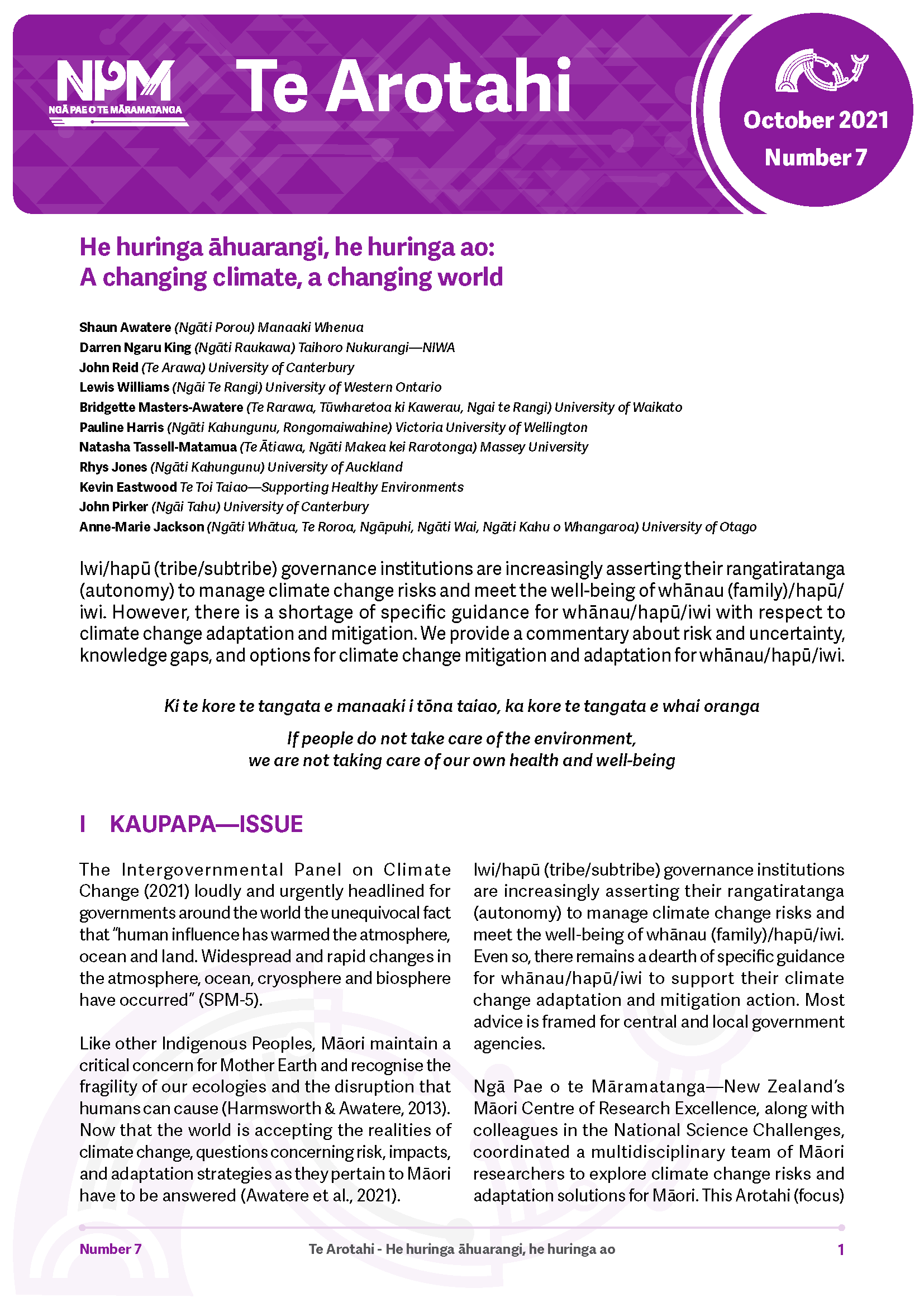
Iwi/hapū (tribe/subtribe) governance institutions are increasingly asserting their rangatiratanga (autonomy) to manage climate change risks and meet the well-being of whānau (family)/hapū/ iwi. However, there is a shortage of specific guidance for whānau/hapū/iwi with respect to climate change adaptation and mitigation. We provide a commentary about risk and uncertainty, knowledge gaps, and options for climate change mitigation and adaptation for whānau/hapū/iwi.
Shaun Awatere (Ngāti Porou) Manaaki Whenua, Darren Ngaru King (Ngāti Raukawa) Taihoro Nukurang - NIWA, John Reid (Te Arawa) University of Canterbury, Lewis Williams (Ngāi Te Rangi) University of Western Ontario, Bridgette Masters-Awatere (Te Rarawa, Tūwharetoa ki Kawerau, Ngai te Rangi) University of Waikato, Pauline Harris (Ngāti Kahungunu, Rongomaiwahine) Victoria University of Wellington, Natasha Tassell-Matamua (Te Ātiawa, Ngāti Makea kei Rarotonga) Massey University, Rhys Jones (Ngāti Kahungunu) University of Auckland, Kevin Eastwood Te Toi Taiao—Supporting Healthy Environments, John Pirker (Ngāi Tahu) University of Canterbury, Anne-Marie Jackson (Ngāti Whātua, Te Roroa, Ngāpuhi, Ngāti Wai, Ngāti Kahu o Whangaroa) University of Otago